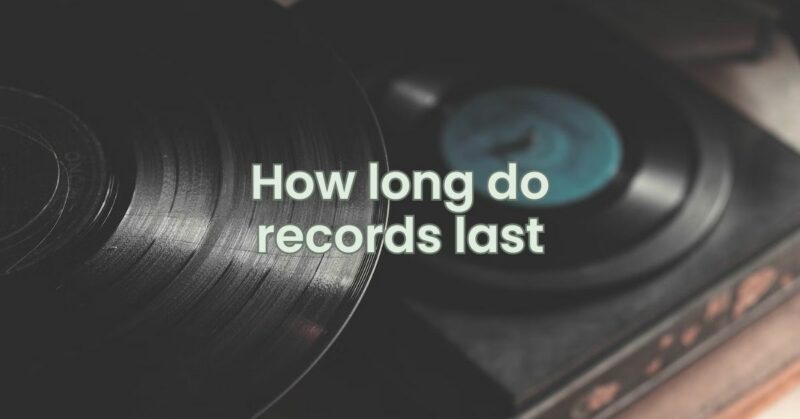Vinyl records, with their nostalgic charm and warm sound, have stood the test of time despite the rise of digital music formats. For music enthusiasts and collectors, vinyl records hold a special place, capturing the essence of a bygone era. However, like any physical medium, records are subject to wear and tear over time. In this article, we will explore the factors that affect the longevity of vinyl records and discuss essential preservation techniques to ensure these treasured musical artifacts stand the test of time.
Factors Affecting Vinyl Record Lifespan
- Handling: Proper handling is crucial to preserving vinyl records. Fingerprints, dust, and scratches can all contribute to the deterioration of the record’s surface and affect the quality of sound reproduction.
- Storage Conditions: The environment in which records are stored significantly impacts their longevity. Factors such as temperature, humidity, and exposure to sunlight can accelerate the degradation of vinyl records.
- Playback Equipment: The quality of the turntable, cartridge, stylus, and tonearm used for playback can also affect the lifespan of vinyl records. Poorly aligned or worn-out components can cause unnecessary wear and damage to the grooves.
Preservation Tips for Vinyl Records
- Proper Cleaning: Regularly clean vinyl records using a soft, anti-static brush or a record cleaning machine to remove dust and debris that can accumulate on the surface. Avoid using abrasive materials or harsh cleaning solutions that could damage the record.
- Handling with Care: Always handle records by their edges to avoid touching the grooves. Fingerprints and oils from skin contact can cause permanent damage to the surface and affect sound quality.
- Store Vertically: Store records vertically to prevent warping and ensure even weight distribution. Avoid stacking records horizontally, as the weight of other records can cause bending and damage.
- Use Inner Sleeves: Place records in anti-static inner sleeves to protect them from dust and scratches. Avoid using paper sleeves, as they can generate static electricity and attract debris.
- Control Environment: Store records in a cool, dry, and dark environment to minimize the effects of temperature and humidity fluctuations. Avoid storing records in direct sunlight, which can cause discoloration and warping.
- Upgrade Playback Equipment: Invest in high-quality turntables, cartridges, and styli to reduce the wear on records during playback. Properly calibrated equipment will result in better sound reproduction and less strain on the grooves.
- Limit Playback Frequency: While it’s tempting to play records frequently, excessive playback can lead to wear and deterioration of the grooves. Balance your listening habits to preserve the life of your vinyl records.
Conclusion
Vinyl records are more than just a musical format; they are cherished pieces of history and art. Preserving their longevity is essential to ensure that future generations can continue to experience the magic of vinyl in the digital age. By following proper handling, cleaning, and storage techniques, vinyl enthusiasts can extend the life of their records and enjoy the unique and warm sound of vinyl for many years to come.
As technology continues to evolve, the allure of vinyl records remains strong, providing a tangible and authentic connection to the music we love. Embracing preservation techniques allows us to keep the magic of vinyl alive and pass on the joy of vinyl listening to the generations that follow.


